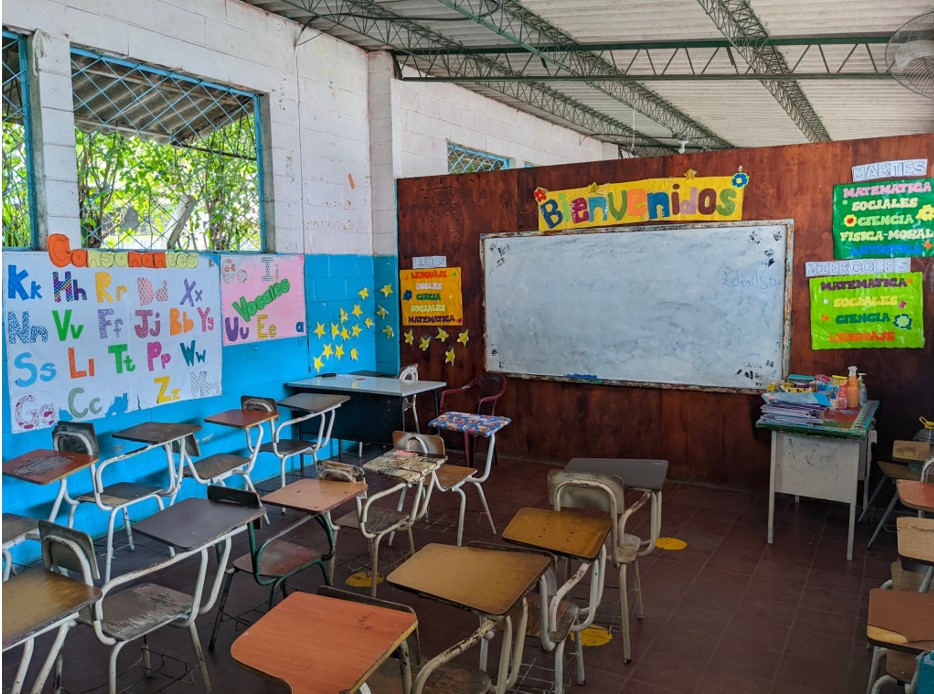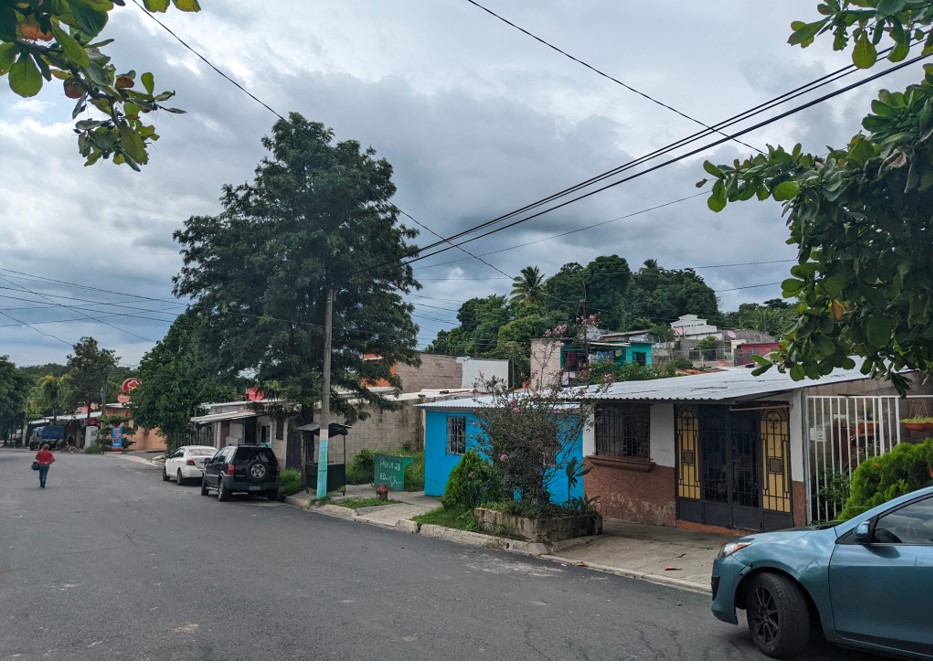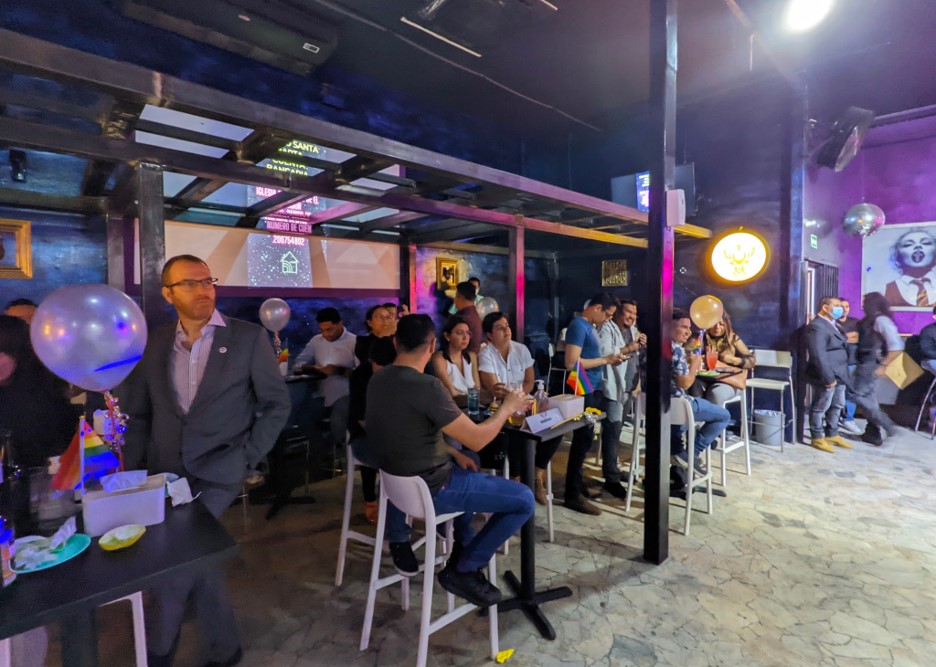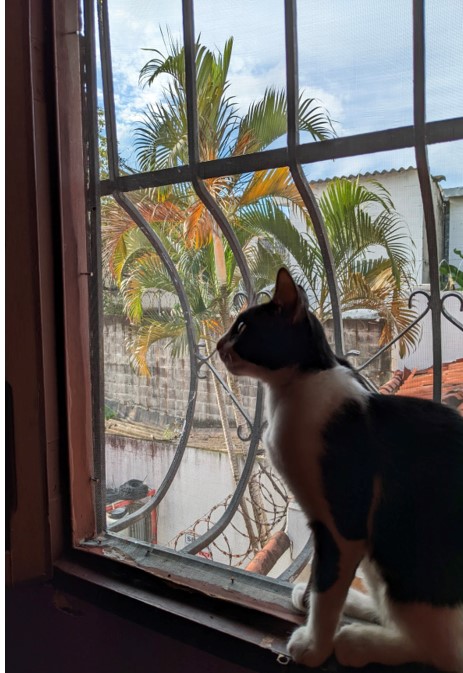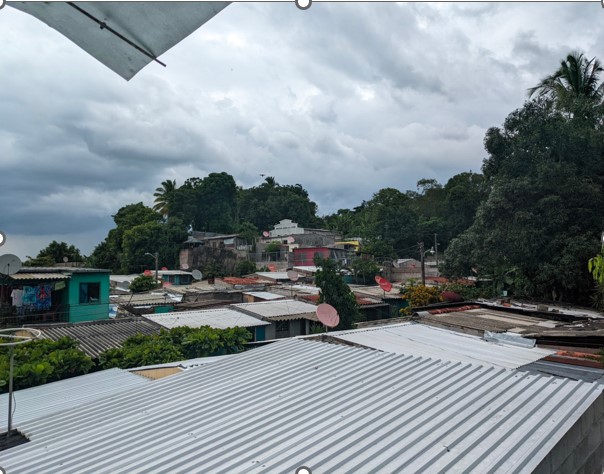A Letter from Joseph Russ, serving in the Northern Triangle of Central America
Summer 2022
Write to Joseph Russ
Individuals: Give to E132192 in honor of Joseph Russ’ ministry
Congregations: Give to D500115 in honor of Joseph Russ’ ministry
Churches are asked to send donations through your congregation’s normal receiving site (this is usually your presbytery)
Subscribe to my co-worker letters
Dear friends,
Even though I walk through the valley of the shadow of death, I will fear no evil, for you are with me. Psalm 23
Last week, local Guatemalan partner CEDEPCA hosted a conversation on a new book: Freeing Congregational Mission. Participants and facilitators from Guatemala and the U.S. discussed the ways we talk about mission together. We looked at photos used in fundraising catalogs or Facebook posts, and we examined whether they were representing these communities, people and places respectfully.
It made me think about the stories I tell in trimestral newsletters.
How do we talk about places where injustice is rampant, times when death surrounds us, and people who face violence sometimes on a daily basis? How can we bear witness to the realities of sin and suffering without reducing people to victims or whole countries to stereotypes? How can we share hope when hope is fleeting? How can we celebrate resilience while we still mourn suffering? How do we tell these stories?
This is something that I struggle with.
When people read the news about El Salvador, Guatemala or Honduras, it can paint a singular picture of the realities here. When people see the Engel List name corrupt and anti-democratic actors, we see three countries marred by political corruption. And this is true, these are countries with long histories of corruption and repression.
When people read about the gangs that plague Central America, it depicts a lawless land of crime, violence and suffering. And the gangs really are violent and responsible for so much death, fear and insecurity.When people read about the state of exception in El Salvador and see that more than 50,000 people have been arrested, that the right to habeas corpus has been suspended and that families cannot find their innocent children, siblings or parents who have been arrested, we see state violence and despair. This is true as well; these rights have been suspended and tens of thousands of people have been hauled off and imprisoned with sham trials.
When people read about domestic violence against women, murders of trans women or LGBTIQ+ youth committing suicide, it looks like misogyny, machismo, homophobia, transphobia, queerphobia, etc. are just an intractable part of these cultures in Central America. And it is also true that discrimination is rampant, and this violence does happen.
With our limited time, we might read one short article about this region, which gets straight to the point about one tragedy or another. But suddenly sound bites and single stories become the only context we have for these places, times and people. And this becomes our narrow vision of whole worlds and peoples.
Through these letters, I have 900 words every three months to share. So I need to think about the story I want to tell.
I also hear tragic stories and read these articles, but I also live in Central America. I have memories with friends, funny stories and bands that I like. I might have a more nuanced view because I am here on a regular basis. It’s the kind of understanding I lack about places I’ve never lived. Syria, Ukraine, DRC, etc.
But it means I am also surrounded by stories of friends of friends dying, former colleagues unjustly thrown in prison, and migrants who braved the journey north only to be deported to Central America. At times, despite fun memories and laughter with friends, we walk through the valley of the shadow of death.
It is difficult to share the Psalmist’s confidence.
When I walk through this valley and look for God, I reflect on what CEDEPCA asked us to reflect on. How do we talk about these places and times? About people? About God in the midst of suffering?
Several weeks ago, I toured the private school run by the Reformed Calvinist Church in a city known for poverty and violence. Most of the kids come from poverty in single-parent homes, and violence is an ever-present reality. The stories they tell reflect that, while at the same time they reflect the joy of playing soccer at lunch, celebrating year’s end with their favorite teachers, or working with computers for the first time. One alum just got married. One wanted to become an engineer. One was getting her master’s degree. These don’t replace the difficult issues facing people, and they don’t make it okay or even better. But there is joy, celebration and hope that walk alongside despair and pain.
Last week I joined another celebration at a fundraising gala for a church organization working with LGBTIQ+ youth in El Salvador. There was music, dancing, snacks and performances. There was lesbian comedy as funny as it was biting. There were drag performances blending celebration with political satire. It was life giving.
Are these interviews, schools and performances clues to how we can talk about the world we live in? Are they clues to how we talk about God?
In the end, no one story, performance, article or newsletter can get it right. We cannot paint a perfectly nuanced picture of an entire country or region or world. But by sharing many stories, we can better appreciate the complexity. With humility and openness, we can dissolve the single story that we have of other places. We can listen to stories from the people who are living this, telling their stories the way they want them to be told.
Joseph
Please read the following letter from Rev. Mienda Uriarte, acting director of World Mission:
Dear Partners in God’s Mission,
What an amazing journey we’re on together! Our call to be a Matthew 25 denomination has challenged us in so many ways to lean into new ways of reaching out. As we take on the responsibilities of dismantling systemic racism, eradicating the root causes of poverty and engaging in congregational vitality, we find that the Spirit of God is indeed moving throughout World Mission. Of course, the past two years have also been hard for so many as we’ve ventured through another year of the pandemic, been confronted with racism, wars and the heart wrenching toll of natural disasters. And yet, rather than succumb to the darkness, we are called to shine the light of Christ by doing justice, loving kindness and walking humbly with God.
We are so grateful that you are on this journey as well. Your commitment enables mission co-workers around the world to accompany partners and share in so many expressions of the transformative work being done in Christ’s name. Thank you for your partnership, prayers and contributions to their ministries.
We hope you will continue to support World Mission in all the ways you are able:
Give – Consider making a year-end financial contribution for the sending and support of our mission personnel (E132192). This unified fund supports the work of all our mission co-workers as they accompany global partners in their life-giving work. Gifts can also be made “in honor of” a specific mission co-worker – just include their name on the memo line.
Pray – Include PC(USA) mission personnel and global partners in your daily prayers. If you would like to order prayer cards as a visual reminder of those for whom you are praying, please contact Cindy Rubin (cynthia.rubin@pcusa.org; 800-728-7228, ext. 5065).
Act – Invite a mission co-worker to visit your congregation either virtually or in person. Contact mission.live@pcusa.org to make a request or email the mission co-worker directly. Email addresses are listed on Mission Connections profile pages. Visit pcusa.org/missionconnections to search by last name.
Thank you for your consideration! We appreciate your faithfulness to God’s mission through the Presbyterian Church (U.S.A.).
Prayerfully,

Rev. Mienda Uriarte, Acting Director
World Mission
Presbyterian Mission Agency
Presbyterian Church (U.S.A.)
To give, please visit https://bit.ly/22MC-YE.
For it is the God who said, ‘Let light shine out of darkness,’ who has shone in our hearts to give the light of the knowledge of the glory of God in the face of Jesus Christ. 2 Corinthians 4:6
![]() You may freely reuse and distribute this article in its entirety for non-commercial purposes in any medium. Please include author attribution, photography credits, and a link to the original article. This work is licensed under a Creative Commons Attribution-NonCommercial-NoDeratives 4.0 International License.
You may freely reuse and distribute this article in its entirety for non-commercial purposes in any medium. Please include author attribution, photography credits, and a link to the original article. This work is licensed under a Creative Commons Attribution-NonCommercial-NoDeratives 4.0 International License.
